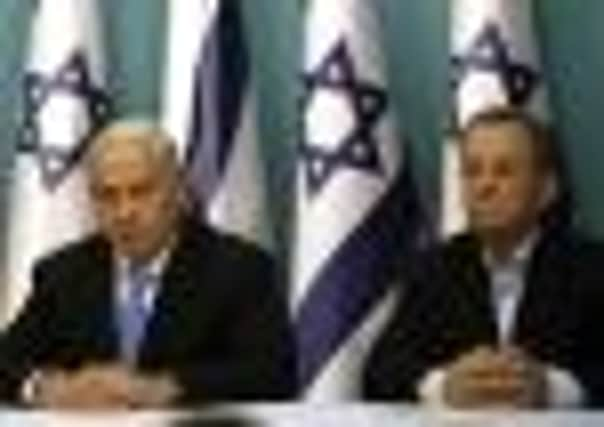Both sides claim victory but Hamas seen as real winner


A total of 161 Palestinians, about half of them civilians, and six Israelis were killed during eight days of Israeli air attacks and Palestinian cross-border rocket barrages that threatened to escalate into an all-out Israeli ground incursion of Gaza.
The Israeli operation began last Wednesday with the assassination of Hamas military chief Ahmed Jabari, just as a round of hostilities was subsiding. The stated purpose was to restore Israel’s “deterrent capability” towards militant groups in Gaza – to inflict massive damage on Hamas so it would refrain from launching rockets into Israel.
Advertisement
Hide AdAdvertisement
Hide AdBut this now appears to have backfired, with both Israeli and Palestinian analysts saying Hamas had emerged even more powerful within Palestinian politics and regionally boosted by the support it had received from Egypt, Tunisia and other Arab League countries.
“On most points, Hamas achieved the maximum that it could in this mini-war and it definitely emerges stronger,” said Menachem Klein, a political scientist at Bar Ilan University, near Tel Aviv.
Palestinian analyst Ghassan Khatib said from Ramallah in the occupied West Bank, where protesters took to the streets in solidarity with Gazans: “Hamas has achieved a big victory in terms of popularity and its public position. There’s been a huge increase in its popularity among Palestinians and among Arabs.”
Despite the devastation from relentless Israeli strikes in Gaza, Hamas is seen as having defied Israel by targeting Tel Aviv and Jerusalem and continuing its rocket barrage right up to the ceasefire on Tuesday night.
“Hamas has consolidated the concept that they are part of the Arab Spring and are related to the new regimes of the Arab Spring while the Palestinian Authority [PA] is part of the past,” Mr Khatib, a former PA cabinet minister said. He added that PA president Mahmoud Abbas, who advocates a two-state compromise solution with Israel, and his Fatah movement were the losers of the war.
Israeli defence minister Ehud Barak said yesterday that Israel had achieved its objectives and predicted it would not face rocket fire so long as the memory of Israeli bombardments remained fresh. “When it becomes blurry, we will face activity and we will know how to deal with it,” he told Israel Radio.
Under the ceasefire deal, negotiations are to be held on the opening of Israel’s border crossings with Gaza, but Mr Barak played this down, saying the ceasefire agreement was merely a “paper bridge to let those who were defeated” save face.
In Gaza yesterday, there were celebrations and a “victory” rally. Hamas prime minister Ismail Haniyeh visited the family of the assassinated Jabari, then said in a televised address that the new, post-Arab Spring approach of Arab states towards Gaza under bombardment was a sharp departure from that during Israel’s 2008 operation, when Egypt under Hosni Mubarak acquiesced in the campaign in Gaza.
Advertisement
Hide AdAdvertisement
Hide Ad“Resistance fighters changed the rules of the game with the occupation [Israel] and upset its calculations. The option of invading Gaza after this victory is gone and will never return,” Mr Haniyeh said.
In Egypt, the ruling Muslim Brotherhood’s top cleric derided peace efforts with Israel, urging holy war against it. “Jihad is obligatory and peace deals are a game of grand deception,” Mohammed Badei said. “Enough negotiations. The enemy knows nothing but the language of force.”
Listing the Israeli achievements of the operation, Mr Barak said: “Heavy missiles were destroyed. A large share of the medium-range missiles were destroyed. Hamas succeeded in hitting built-up areas in Israel with one ton of explosive material, while the targets in Gaza received a thousand tons.”
But opposition leader Shaul Mofaz said the operation had been far from a success. “The objectives were not achieved. Deterrence was not achieved,” he said.
In Gaza, men swept streets, bulldozers removed debris and fallen trees, and shoppers crowded outdoor markets. “We are back to business,” Iyad Radwan, 23, said. “Now it is time for rebuilding.”
In the southern Israeli city of Beersheba, which was bombarded by rockets, Katya Fayngart, 28, took her eight-month-old baby outside for the first time since the fighting started. Many have criticised the government for not launching a ground offensive, but Ms Fayngart said: “It is possible they made the right decision. Time will tell. I hope for peace with the neighbours.”